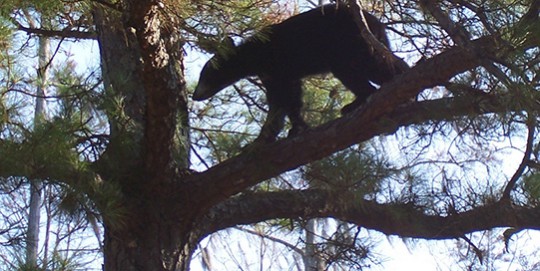Bill Seeks To Preserve Bear Habitat, Reduce Conflicts
December 30, 2015
Pointing to a lack of coordination between agencies, House Minority Leader Mark Pafford, D-West Palm Beach, filed a bill Tuesday designed to protect black-bear habitat while reducing conflicts between bears and humans.
 The bill is filed for the 2016 legislative session and is identical to a measure filed earlier by Sen. Darren Soto, D-Orlando. The bills came after the state held a controversial bear-hunting season this fall and amid concerns about potentially dangerous interactions between bears and humans in residential areas.
The bill is filed for the 2016 legislative session and is identical to a measure filed earlier by Sen. Darren Soto, D-Orlando. The bills came after the state held a controversial bear-hunting season this fall and amid concerns about potentially dangerous interactions between bears and humans in residential areas.
The proposal points to the roles of the Florida Fish and Wildlife Conservation Commission, the Florida Department of Agriculture and Consumer Services and the Florida Department of Environmental Protection in managing wildlife and state lands.
“Both state forests and state parks constitute prime habitat for the Florida black bear,” the proposal says. “The Legislature also finds that there has been a lack of interagency coordination to preserve the habitat for the Florida black bear. This lack of coordination has resulted in an increase in human-bear conflicts.”
The proposal, in part, would take steps such as changing schedules for controlled burns in state forests and state parks that include bear habitats. The changes would be aimed at allowing the growth of oak trees, saw palmettos and other berry-producing plants that provide food for black bears.
Also, the proposal would create a state account with at least $50 million to help local governments buy bear-resistant garbage containers. Cities and counties in bear-prone areas would be able to borrow money from the account to buy and distribute the containers to all residents in the areas.
by The News Service of Florida
Comments
One Response to “Bill Seeks To Preserve Bear Habitat, Reduce Conflicts”



Spend, spend, spend that’s all these politicians know how to do now days, Fifty million for bear proof containers, I’ve lived in Florida most of my life, and seen one black bear, then went to Great Smoky Mountains saw three in one day. With deforestation and urban sprawl, and the food supply availability, black bear numbers will stay low.And that’s not a bad thing. Sounds like a political move to appease the angry bear huggers over the bear hunt, at the expense of the american taxpayer. We don’t care how much we spent if will keep some votes.